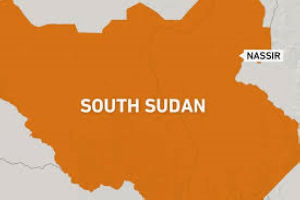The First Fund, a short term investment scheme by FirstBanc Financial Services, closed the 2014 financial year with an impressive annual yield of 37.38 per cent, thereby outperforming the Government of Ghana Treasury Bills benchmark.
The fund performed 13 per cent more than Bank of Ghana’s benchmark of 24.10 per cent for the 91 day Treasure Bill and 23.61 per cent for 182 day bills.
The performance over the year, was also far ahead of that of other money market mutual funds, Professor Cletus Dordunoo, Board Chairman of the First Fund Limited, stated at its Fifth Annual General Meeting (AGM) in Accra on Tuesday.
The Fund, which is run by the First Fund Limited (FFL) of the FirstBanc Financial Services (FFS), an investment banking firm, also closed the 2014 fiscal year with its Assets under Management (AUM) surging by 75.61 per cent, from over 13 million in 2013 to over 22 million by the close of 2014.
The client base of the Fund has also grown by 26.88 per cent, from 6,997 in 2013 to 8,869 per cent in 2014.
Prof Dordunoo attributed the high performance to the influence of the high interest rates on the money market in 2014.
He also explained that the surge in the Fund’s AUM was on the account of impressive return on investment by its portfolios and injection of additional funds by existing and new clients.
He encouraged shareholders to maintain the impressive growth of the Fund by sustaining their investments and leading others to join in.
Prof. Dordunoo, who was re-elected to serve another term as the Chairman of the Board of the Fund, thanked the shareholders for the confidence instilled in him and pledged his commitment to ensure quality services and enhanced growth of the Fund.
Mr Samuel Annie Asiedu, the Chief Investment Officer of the Fund, explained that, to minimize risk, and maximize return, funds have expertly been invested with different financial institutions, before which due diligence are conducted on these finance houses to ensure safety and security of the funds.
He said the Fund’s strategy in 2015, therefore would be to invest in high yielding medium to long term securities, to maximize returns on the funds while minimizing risk, while its Managers continue to monitor macroeconomic indicators to adjust their strategy when the need arises.
Accord to him, 2015 was expected to be characterized by some economic difficulties that could mute economic growth in the face of employment challenges, increased taxes in consumer products, an expected heighten in inflation rate and depreciation of the Cedi.
“It is expected that there will be a general slowdown in economic growth as a result of the on-going energy crisis (dumsor),” he said.
In the midst of these challenges treasury rates are expected to remain high in the first half of the year as the Central Bank continues to deal with the national fiscal deficit, he said.
Interest rates, he said, are however expected to fall with the injection of the first tranche of the US$950 million dollar facility of US$118 million dollars, under the signed International Monitory Fund programme, and rates are generally expected to remain low in the third quarter when Ghana accesses the Millennium Challenge Account.
Mr Asiedu said the Fund was therefore positioned to benefit from this high interest rate environment and continue to generate competitive returns for the fund.
Shareholders adopted and approved the Financial Statements, Auditor and Fund Manager’s Reports and authorized the Directors of the Fund to appoint and fix remuneration of Auditors and approve an increase in the sitting allowances of the Directors from GH? 500.00 to GH?600.00 per sitting.
Business News of Wednesday, 13 May 2015
Source: GNA













